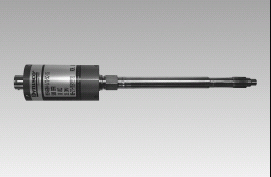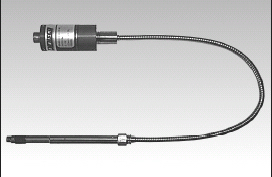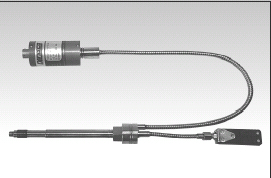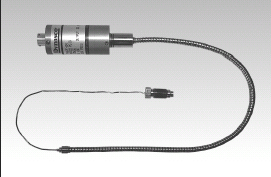
Required - TTE - 3256 - Melt Pressure Transducers - MDA420 Series








Reference Numbers
TTE - 3256Product
Melt Pressure Transducers - MDA420 SeriesManufacturer
Dynisco - Manan Enterprise, India
Dynisco Range of MDA420 Series:
1) MDA420:
- Pressure ranges: 0 - 17 bar to 0 - 2,000 bar
- Output: 3.33 mV/V
- Accuracy: +/- 0.25 percent FSO
- Standard process connection: 1/2-20 UNF
- Standard electrical connection: Bendix PT02A-10-6P
- DyMax coated 15-5 PH stainless steel wetted parts
- Great stability and repeatability
- Internal 80 percent shunt calibration
- CE approved
Dynisco's MDA420 Series of pressure transducers are the ideal choices for general purpose polymer melt pressure measurements requiring simple installation, high accuracy (0.25 percent), repeatability and reliability.
Standard transducers are supplied with a DyMax coated diaphragm for increased wear resistance and longevity. A 6-pin Bendix-style connector is used for easy connects and disconnect.
2) MDA422:
- Pressure ranges: 0 - 17 bar to 0 - 2,000 bar
- Output: 3.33 mV/V
- Accuracy: +/- 0.25 percent FSO
- Standard process connection: 1/2-20 UNF
- Standard electrical connection: Bendix PT02A-10-6P
- DyMax coated 15-5 PH stainless steel wetted parts
- Flexible stem offers greater thermal isolation and mounting ease
- Good stability and repeatability
- Internal 80 percent shunt calibration
- CE approved
Dynisco's MDA422 Series of pressure transducers are the ideal choices for general purpose polymer melt pressure measurements requiring simple installation, high accuracy (0.25 percent), repeatability and reliability.
Standard transducers are supplied with a DyMax coated diaphragm for increased wear resistance and longevity. A 6-pin Bendix-style connector is used for easy connects and disconnect.
3) TDA432:
- Pressure ranges: 0 - 17 bar to 0 - 2,000 bar
- Output: 3.33 mV/V
- Accuracy: +/- 0.25 percent FSO
- Standard process connection: 1/2-20 UNF
- Standard electrical connection: Bendix PT02A-10-6P
- Single point temperature and pressure measurement
- RTD and optional thermocouples available
- Field - replaceable Type J thermocouple
- Internal 80 percent shunt calibration
- CE approved
Dynisco's TDA432 Series of pressure transducers are the ideal choices for general purpose polymer melt pressure measurements requiring separate temperature output, simple installation, high accuracy (0.25 percent), repeatability and reliability.
Standard transducers are supplied with a DyMax coated diaphragm for increased wear resistance and longevity. A 6-pin Bendix-style connector is used for easy connects and disconnect. The TDA432 comes standard with a removable Type J thermocouple.
4) MDA435:
- Pressure ranges: 0 - 35 bar to 0 - 2,000 bar
- Output: 3.33 mV/V
- Accuracy: +/- 0.25 percent FSO
- Standard process connection: 1/2-20 UNF
- Standard electrical connection: Bendix PT02A-10-6P
- Fits in tight locations
- Internal 80 percent shunt calibration
- CE approved
Model MDA435 Series of pressure transducers are the ideal choice for general purpose polymer melt pressure measurements with space restriction issues. The MDA435 features a 0.06" diameter exposed capillary. This allows 1/16" radius bends. It also has a free-spinning jam nut that simplifies installation.
Standard transducers are supplied with a DyMax coated diaphragm for increased wear resistance and longevity. A 6-pin Bendix-style connector is used for easy connects and disconnect.
The MDA432 designed for the restricted locations is ideal for nozzle pressure measurements in injection molding.
Dynisco's manufactures a wide variety of robust 3.33 mV/V melt pressure transducers, which are designed specifically for harsh and rugged environments of the extrusion and Polymer Processing Industries. Select from one of the many robust and reliable products offered on the market today. No matter what the pressure requirement, whether it is for safety reasons or control to help tighten product specifications, Dynisco can supply it.
(For images, please see next pages)
For More Details Contact:
Manan Enterprise
Mr. Yogesh Desai
Tel.: +91-22-26102833
Mobile: +919819301890
E-mail: manan@bom4.vsnl.net.in


{{comment.DateTimeStampDisplay}}
{{comment.Comments}}